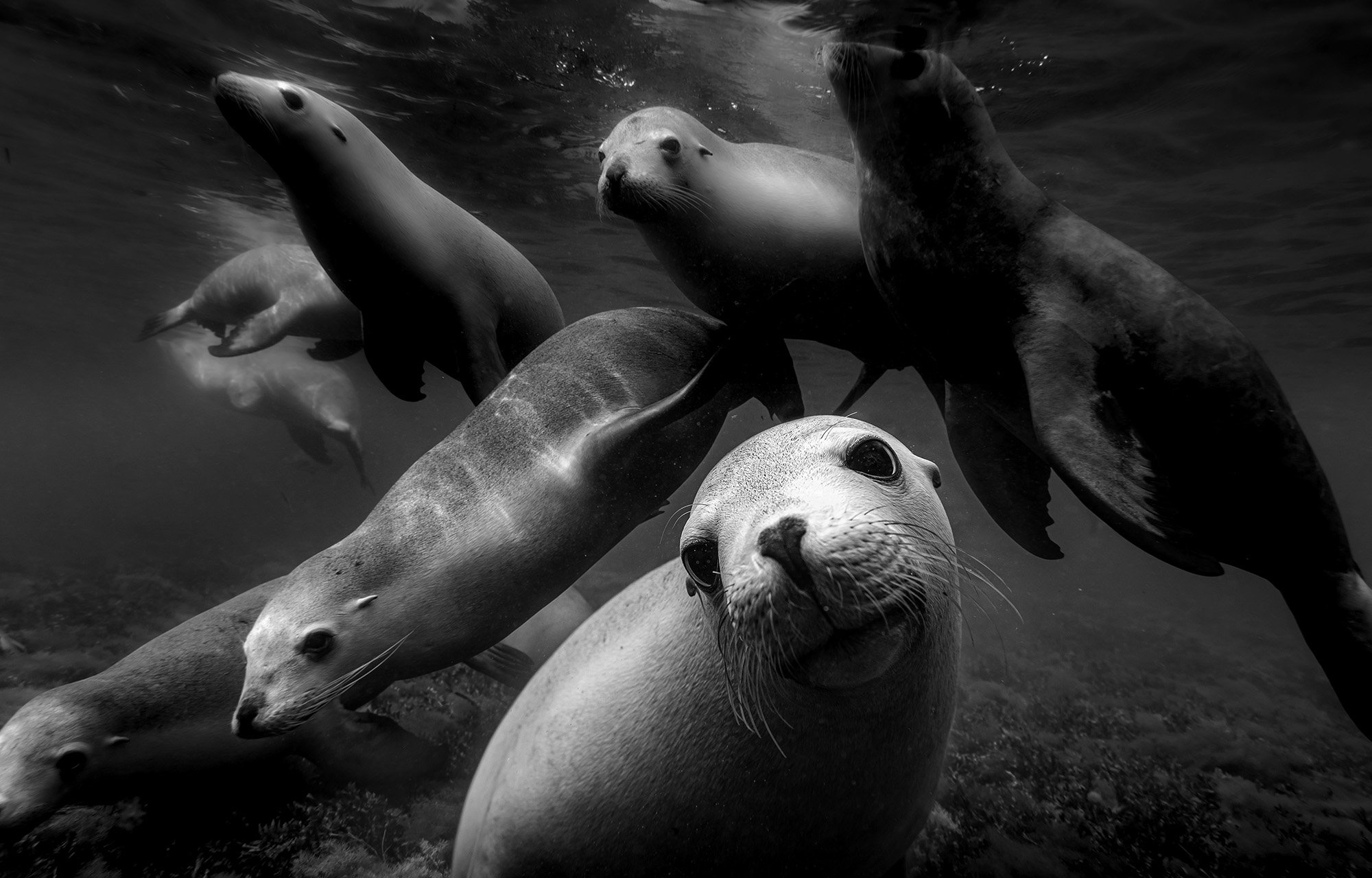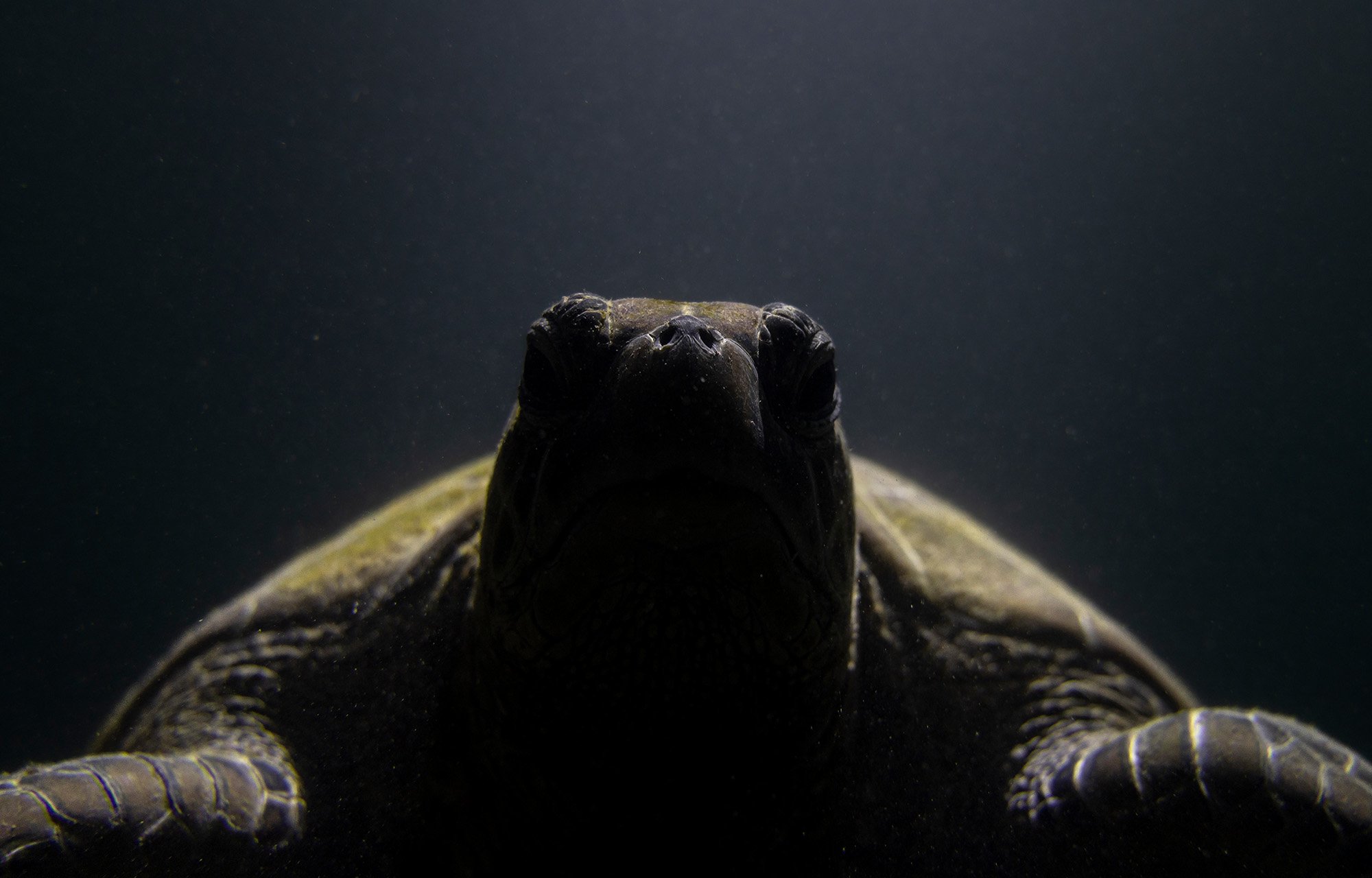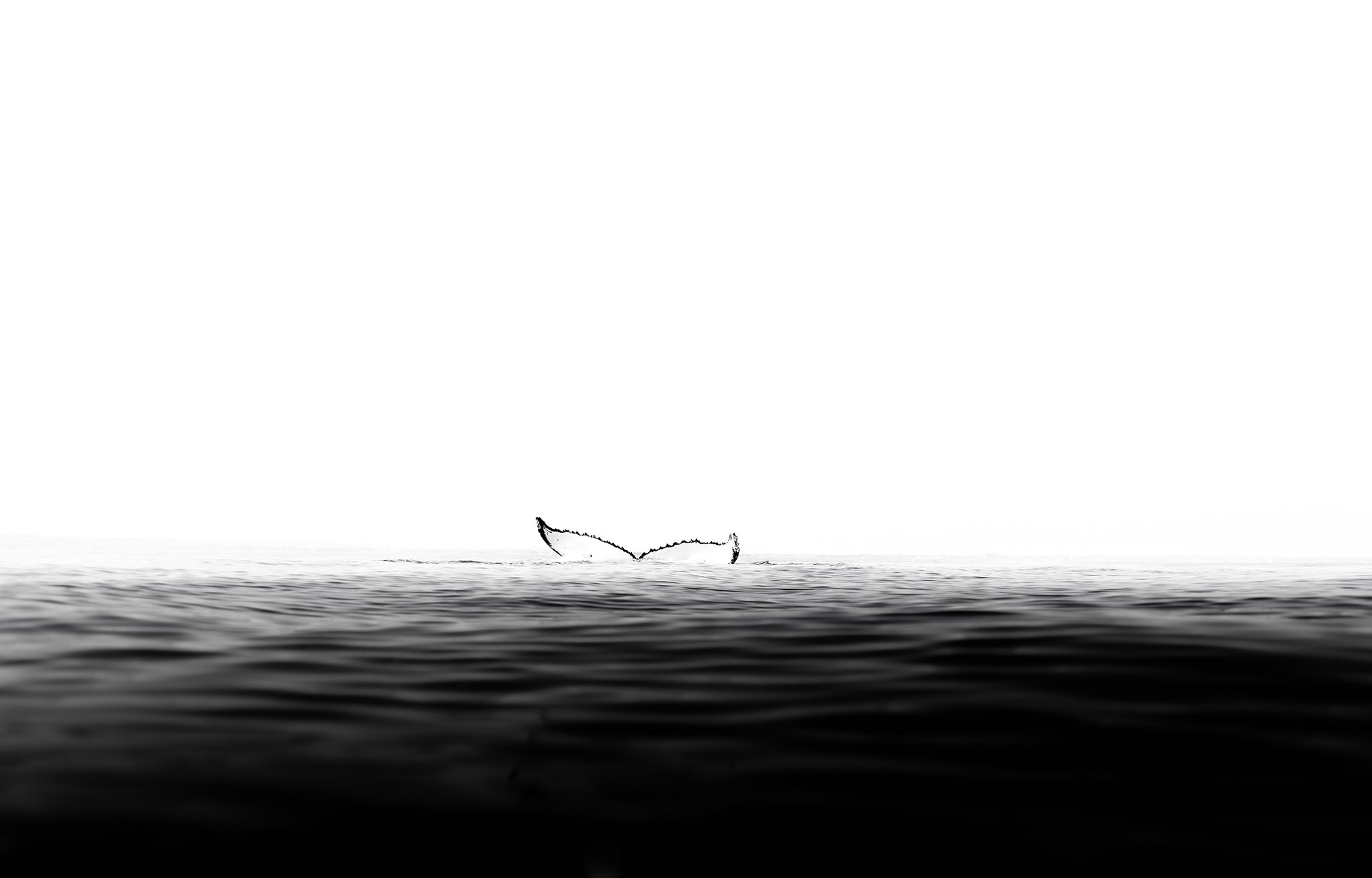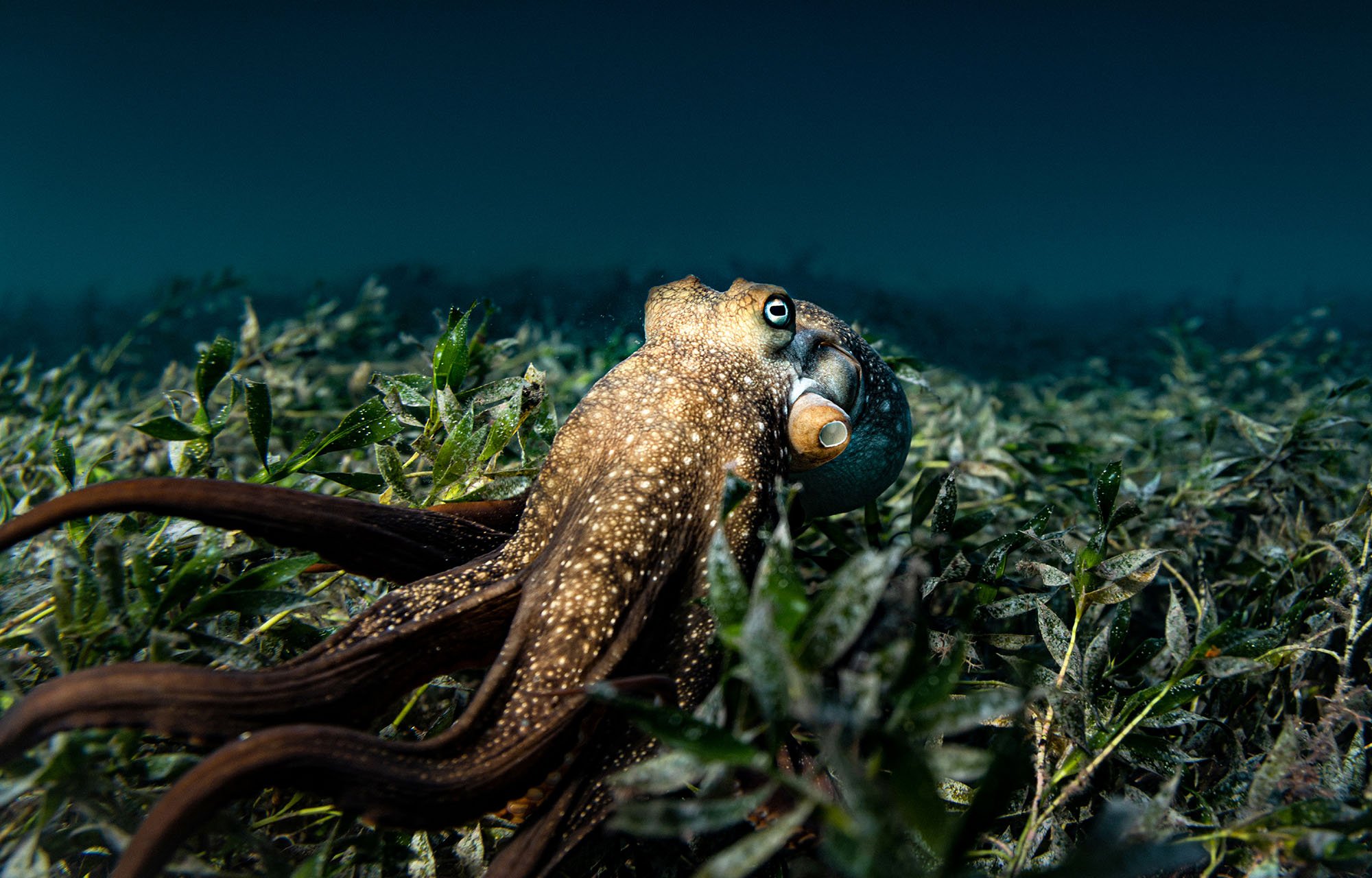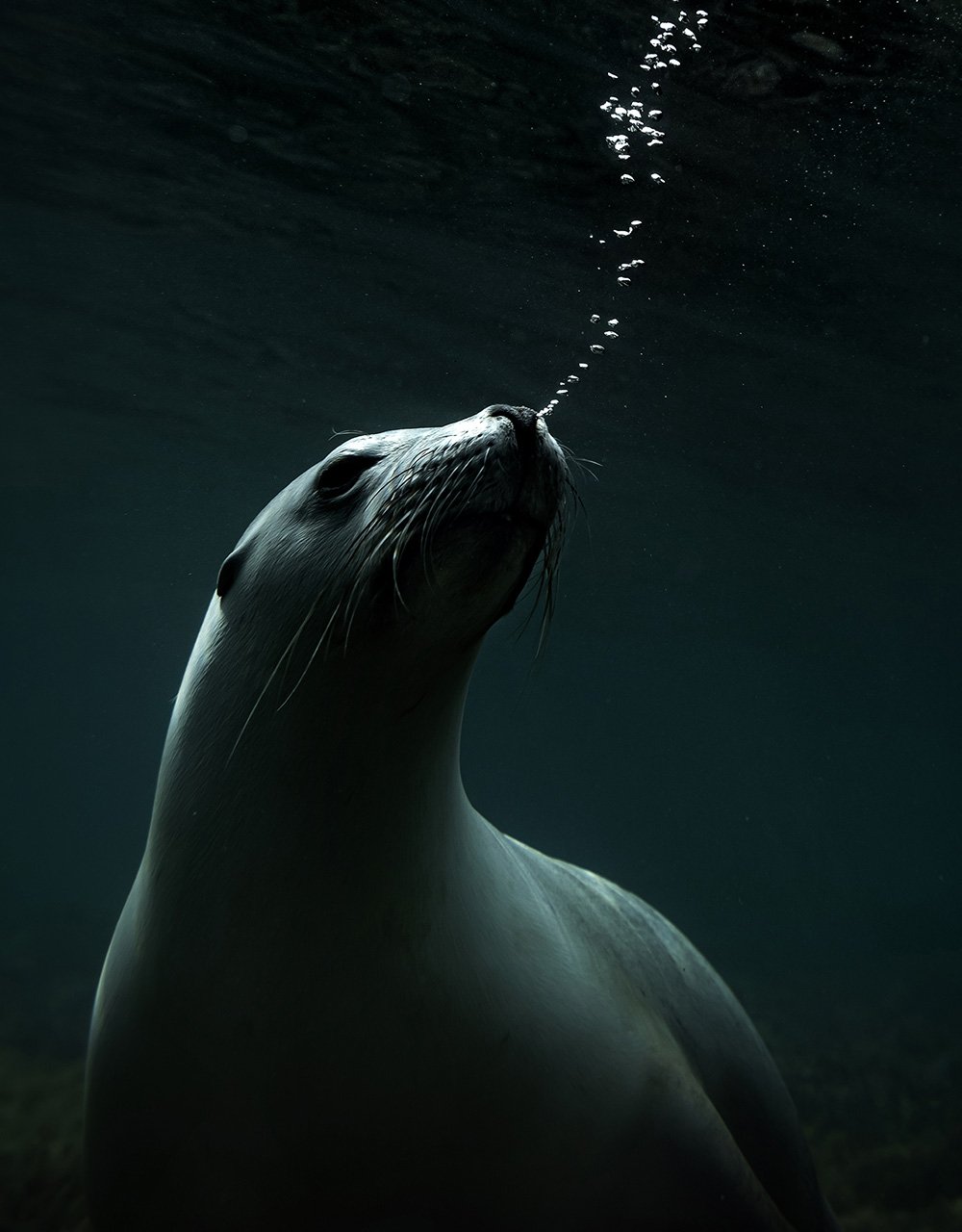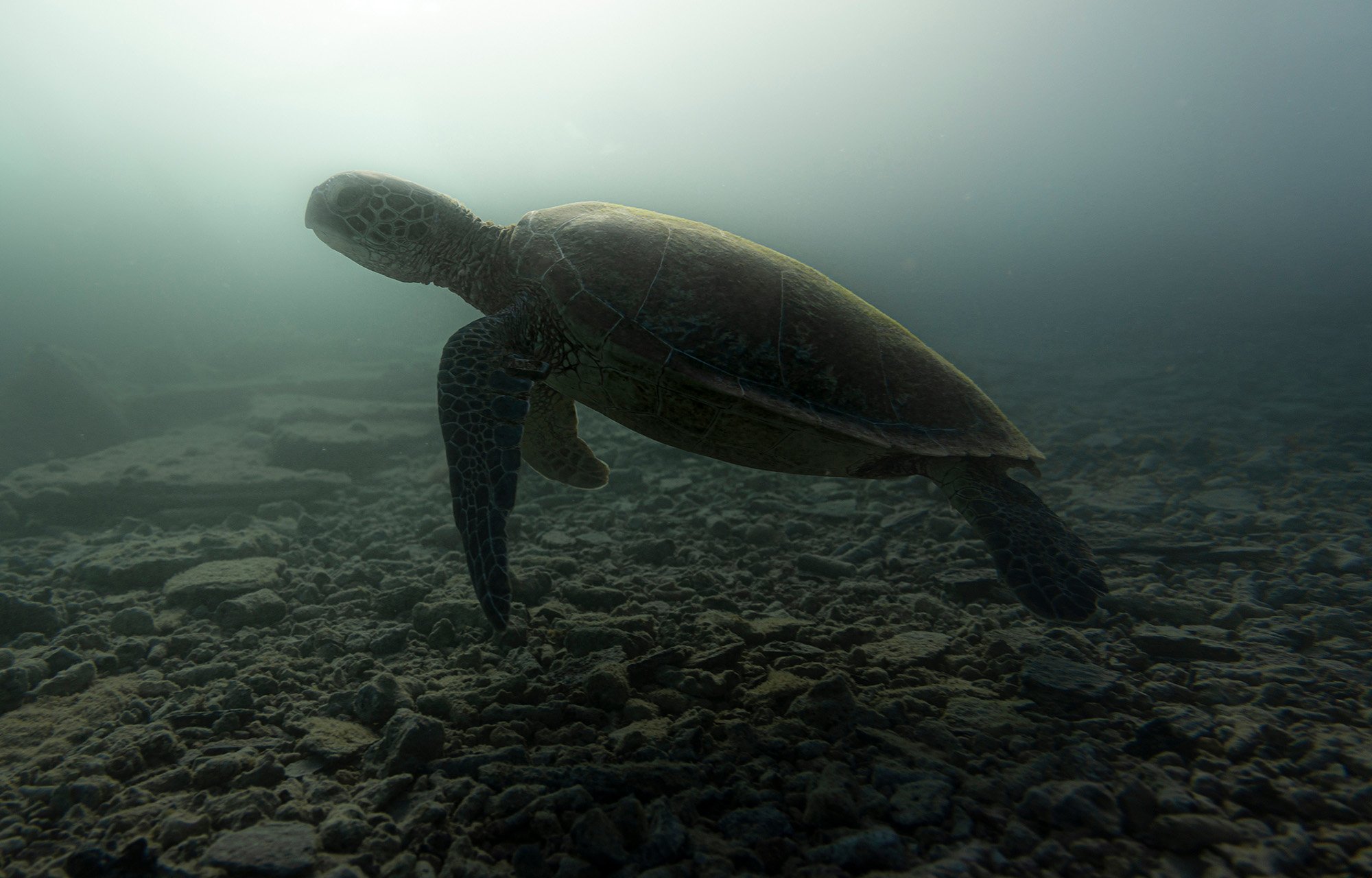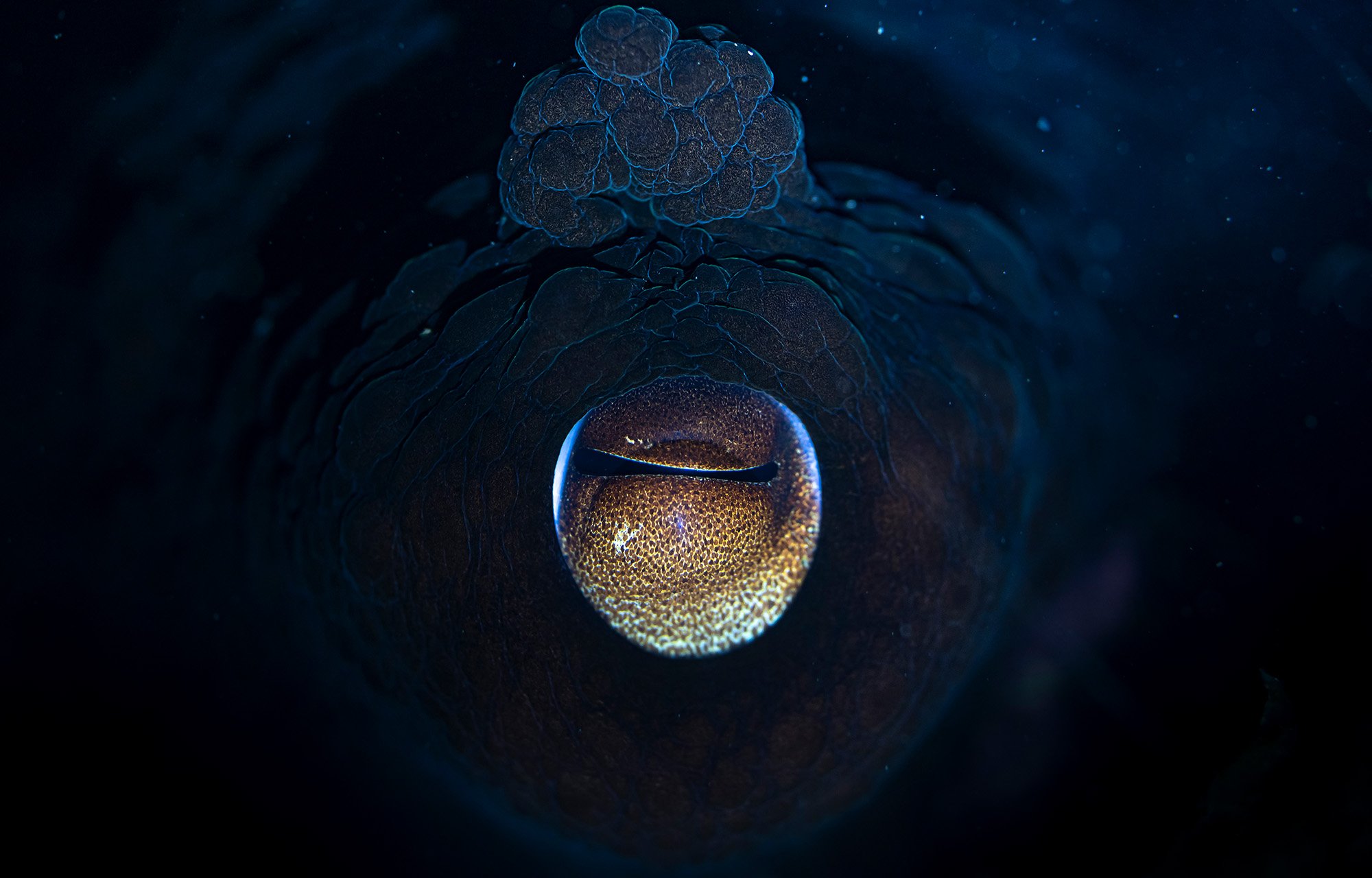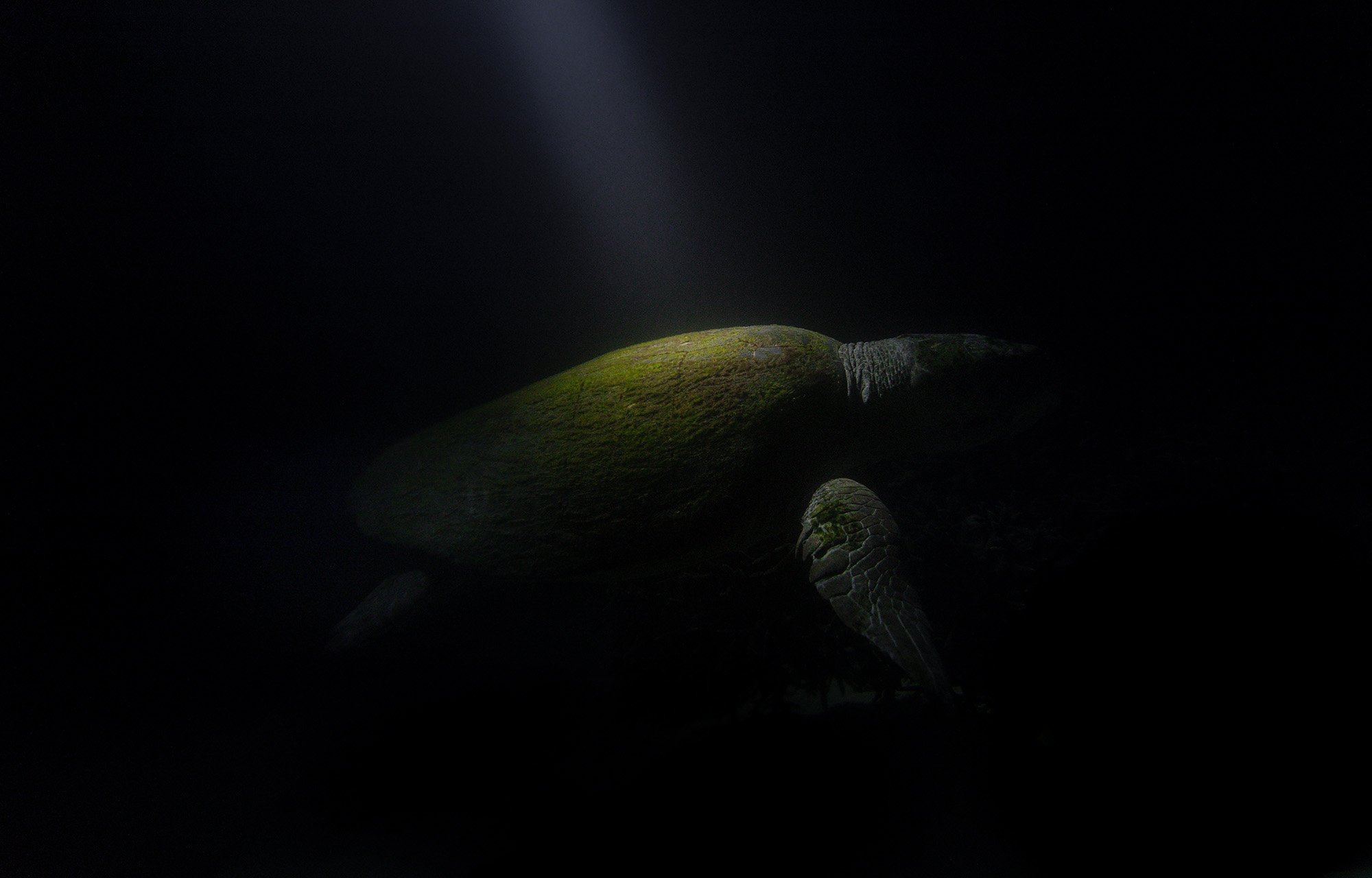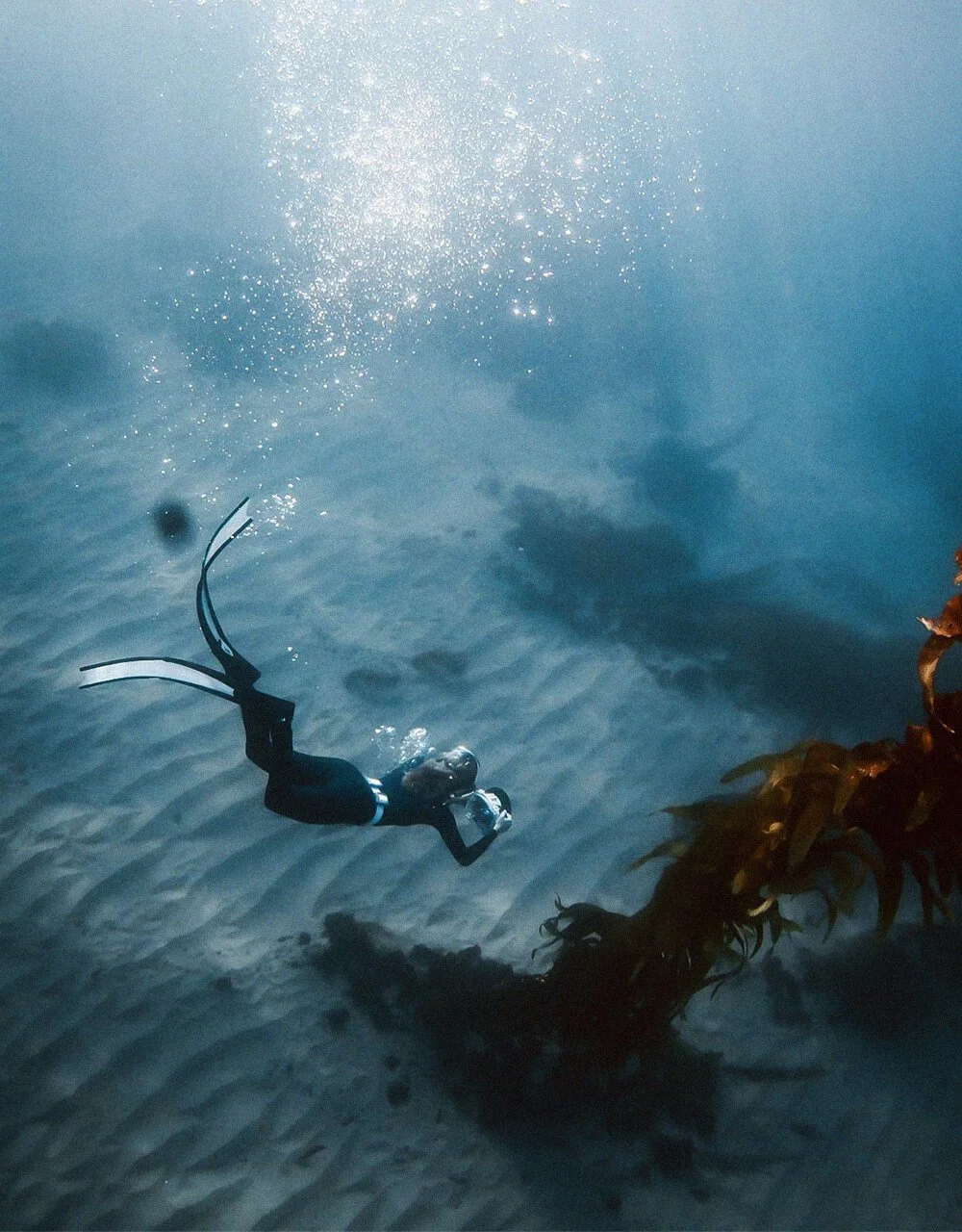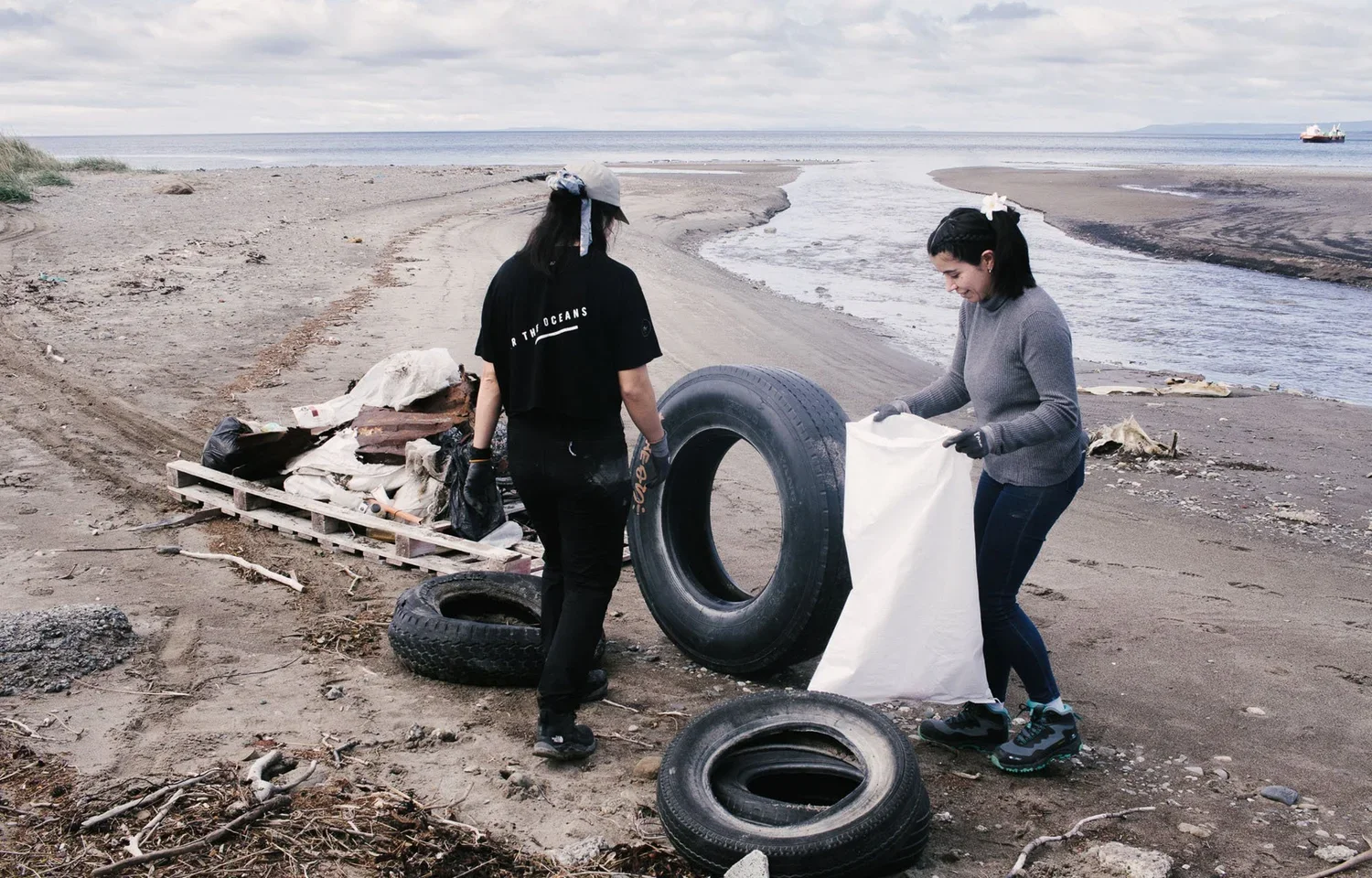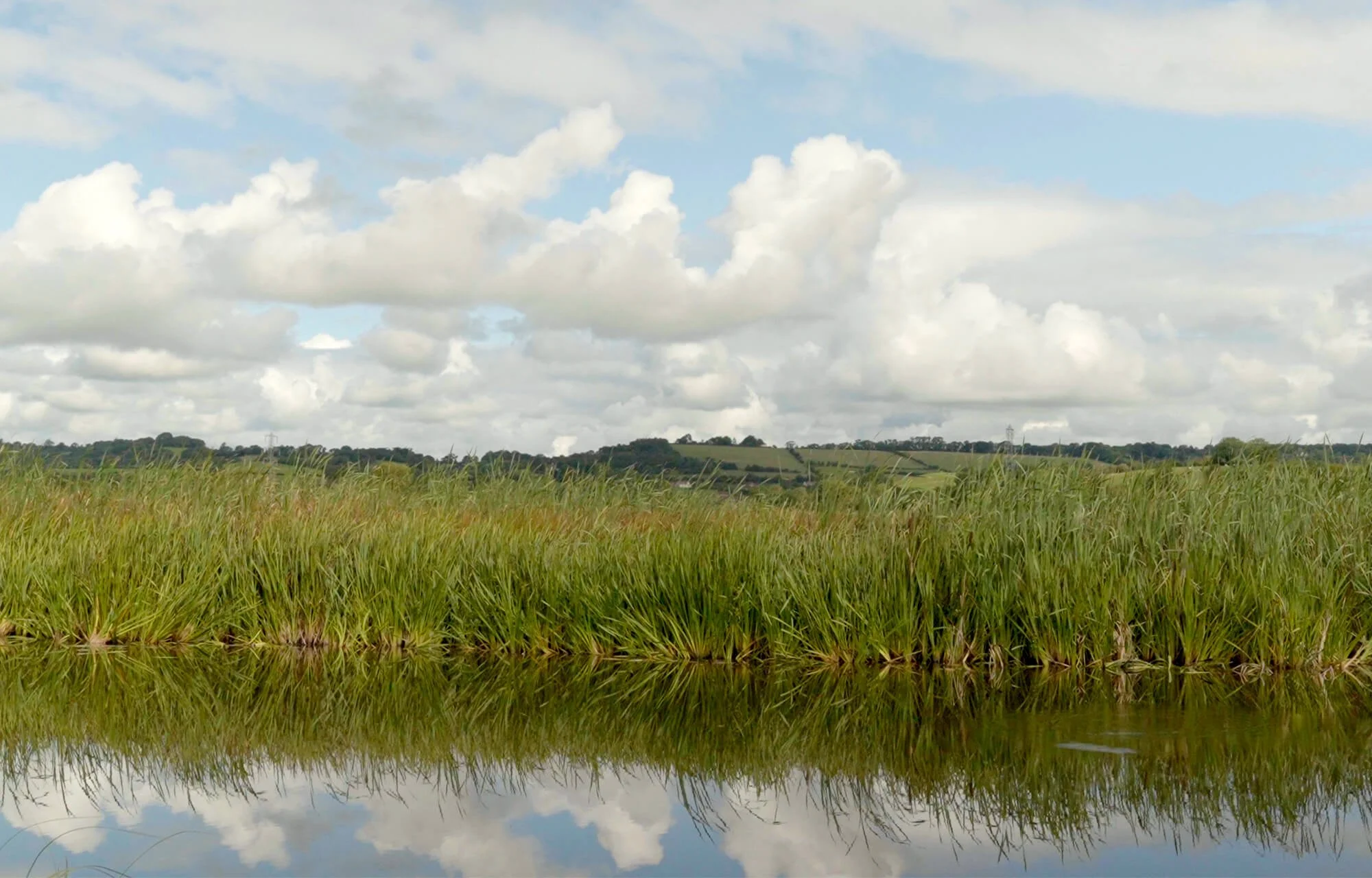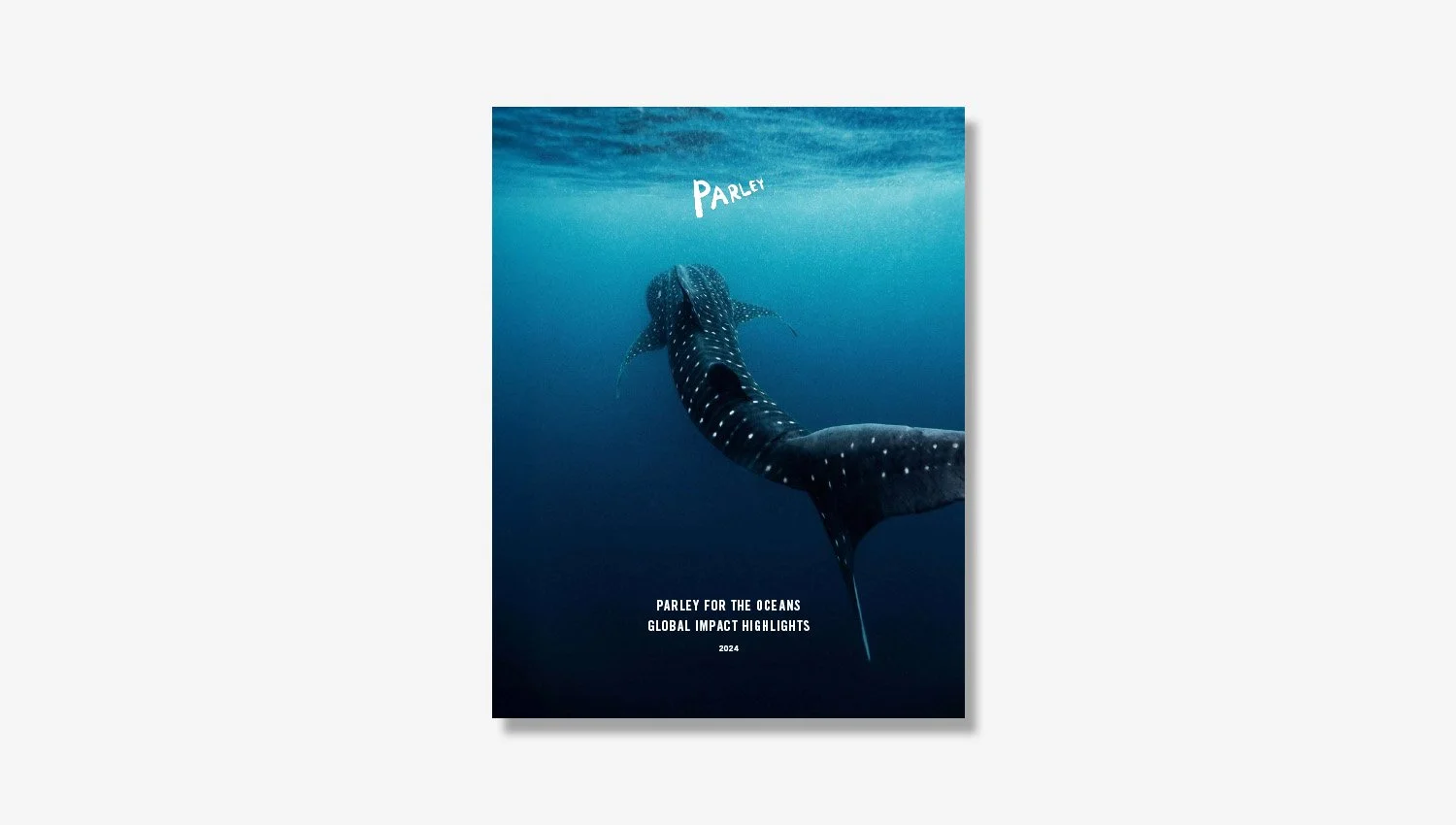IN FOCUS: Matt Bagley
Speaking to a Parley favorite about his work photographing sea life in the waters surrounding Phillip Island
Matt Bagley has been surrounded by the ocean for his entire life, growing up the son of a fisherman in a small fishing village in southern Australia. He started taking photos in high school as a way to express himself and set about building an archive of the way he sees the world – through the water.
Matt’s photos, posted on his Instagram page, have been a regular fixture on the Parley account, beautiful images of sea creatures moving through rays of sunlight that pierce the ocean’s surface, mostly taken in the water around Phillip Island, close to San Remo, the town where he lives. Often he shoots in darkness, free diving using just a torch for guidance. In his words, “the ocean is not blue; it’s green, black, and hazy, full of shadows and darkness.”
Part of his motive for photographing the ocean is to show the images to his son, who’s too young to dive to the depths he shoots at. Matt wanted to pass on his fascination with the water and inspire in him the same love that he has.
In this latest In Focus, we caught up with Matt to hear about his life’s work, shooting cephalopods (“the closest thing to an alien you can experience”) and get a preview of a new depth-building photography technique called “Palx” that he’s been honing recently.
Q & A
What led you to the water, and documenting it with a camera? I'd love to hear about your journey and how you started taking photos.
I grew up in the ocean in a small fishing village down the south of Australia. My Pa was a fisherman and so I spent many long days sucking in diesel fumes and feeling seasick as I rocked up and down in an old cooter boat. The ocean has been around me all my life, both figuratively and physically, I couldn't get away from it even if I wanted to. Like many people it's my happy place. I started taking photos in high school, mostly as a creative outlet and experimenting with what cameras I can put underwater without flooding. I was never the most academic student and I'm dyslexic so words don't come naturally for me and consequently most of my life I’ve chosen to express myself visually. That visual/creative nature has directed my path in life, working as a creative director within various companies. I’ve always said my job is to bridge the gap between technically minded and conceptual thinkers and that is still what I do these days.
Photography for me has been my creative outlet, something I can do just for me. A self satisfaction and not to fit the ideas of others or be bound by the needs to achieve a commercial outcome. It is an escape. The experience of being in the ocean and the process or journey is what draws me to it, not the result of a final frame.
We have all heard photography referenced as the art of storytelling, for me that was the first reason to show my work. I took photographs to show my son, as he was too young to dive to those depths or in those locations and I wanted to help grow his fascination and appreciation for the ocean and I continue to do so today.
You talk about the ocean as a place of shadows and mystery, somewhere where there's still so much to learn. Since becoming an ocean photographer, what have you learned about yourself and our world?
As a photographer I am endlessly learning. I am not a technical photographer in any way. I use a camera that has minimal buttons in an underwater housing that further limits its functions. I have learnt to enjoy the process over the end result and believe I learn more from failure than success.
I’ve learned that it’s important to produce work that is unique, something that is unmistakably mine. A reflection of who I am and what I’ve experienced in my life. Don't just capture the present moment, you are not here to just document something. It needs to say “this is the way I see the world”.
It’s a chance to get a message across. You have the chance to tell your story to somebody else with the opportunity to change them and their point of view. If you can introduce them to something new, that is a gift to them. A new perspective in this world.
I believe that some moments, though fleeting, need to be appreciated. It's easy to get wound up in the endless thinking pattern of “what's next” in life. Our actions have a huge impact so be considerate to people, nature and everything we touch. As individuals we may feel small but as a collective we can truly make change.
You've been developing a new Palx image style - can you explain "Palx", how long you've been working on that and why you thought it was important to incorporate it into your work?
Palx has been a work in progress for some time. There’s various forms of this which have been used, mostly in animation or around digital UI experiences, but not so much ocean photography. I’ve been shooting still frame bursts and using depth maps on the images giving the illusion of a Z axis within a standard X and Z two dimensional image. I have enjoyed incorporating this into my work as it helps bring the viewer a more immersive experience. Anything that helps you feel more, I am all for. There has been a lot of learning involved and there will continue to be but it’s great to have it at a stage that I’m happy to share.
There's a great photo of yours where a baby squid sits on the palm of your hand. At the time, shooting around Phillip Island, you were in complete darkness, using just a torch. Do you feel fear when you're shooting in those situations?
Shooting in the darkness is a different experience for me. I don’t use strobes on my camera, just handheld dive torches. It’s not so much fear it’s more a feeling of excitement. My senses feel heightened with limited vision, you rely more on sound. I hear more and feel more in the darkness. I know the creatures in the water see me long before I see them, my torch gives away my location. It’s more a feeling of searching for subjects, because of the limited vision you have a single point of focus, so it’s easier to discover things that you might look past in daylight. It’s hard work to achieve a successful shot, usually needing four hands to find the frame and direct the torch, it’s nearly impossible to do this alone.
Do you have a particular species that you like to photograph and if so, why?
Cephalopods because they are the closest thing to an alien most would get to experience, they are all so uniquely beautiful. I have always had a fascination with mako sharks but I have never had the chance to photograph them, hopefully soon.
Are there any photographers - environmental or otherwise - who have inspired the work that you do?
There are many amazing photographers doing unbelievable work and most don't really get noticed. The people that are pushing the boundaries blending styles and mediums creating something different are the ones that capture my attention. Here are just a few that would get the creative juices flowing: Nirav Patel, Bruce Gilden, Christian Maté Grab, Ugur Kayan, Levon Biss, Hannah Reyes Morales, Angel Fito, Narelle Autio, Paolo Verzone. That’s the best thing about social media, you have never ending access to a flip book of inspiration.
You say that you take shots in "a single breath" - how long can you stay underwater and does this freediving technique require a lot of practice?
I’m a terrible free diver, that’s the truth. I probably wouldn’t even call myself a free diver. I would love to be better. I get way too excited in the water, when I find a moment or a frame I want to shoot I get tunnel vision. I burn my breath out quickly because I know I’ve only got that one moment to get the shot. I don’t have the luxury to sit on the bottom and breathe through a reg. Shooting like this limits the success of my shots, but I also appreciate it more because I have to work damn hard for each moment. My dive depth is no more than 10m mostly because I predominantly shoot with natural light so between one and 10m has the most suitable lighting levels. My working breath hold is about 1 minute 30 but towards the end of a dive, or if I’ve been working hard I need to concentrate to calm my body. That’s where the practice is, in the calming of your mind, slowing your heart rate and understanding your limits.
What's the one thing that you've seen in the water that you wish you'd been able to take a photo of?
I miss heaps of shots because I run out of air. This keeps me searching. I often see shots that I just can't capture but they stay in my mind as “maybe next time” frames. Moments that I’ve seen but not photographed, It’s like a catalog of uncaptured frames that hopefully one day I’ll find.
Do you prepare for shoots with an idea of the animals that you might see in the water, or is it a case of heading out and seeing what you can find?
My preparation consists of choosing what lens I'm going to shoot with as that determines what my eye will be searching for. I never really know what I'm going to see unless I am in a location for a particular subject. In a way it forces you to look for things you may normally look past, a way to reimagine a familiar moment. What if I could shoot a whale on macro or a nudibranch with a wide angle lens, is there a way to make that happen?
As someone who regularly documents the oceans, what climate-change caused impacts are you seeing on life there?
Things are disappearing and the ocean is becoming less plentiful. I have watched the places I grew up being developed, filling with housing estates during population booms. All these people want to live by the sea, and some are happy to even cut down the foreshore foliage for the view of the ocean from their toilet. It's a confusing disconnect to consider people that love to be at the ocean but have very little interest in protecting it. Many are happy living in the now with little consideration for the legacy it leaves for the generations to come.
In the grand scheme of things we have been here for a speck of time and our impact has been extreme, wiping out entire species. We forget that mother nature is bigger than all of us and our impact also limits our survival or somewhat dooms our fate.
"You have the chance to tell your story to somebody else with the opportunity to change them and their point of view. If you can introduce them to something new, that is a gift to them."
Matt Bagley
"It’s not so much fear it’s more a feeling of excitement. My senses feel heightened with limited vision, you rely more on sound. I hear more and feel more in the darkness."
Matt Bagley

